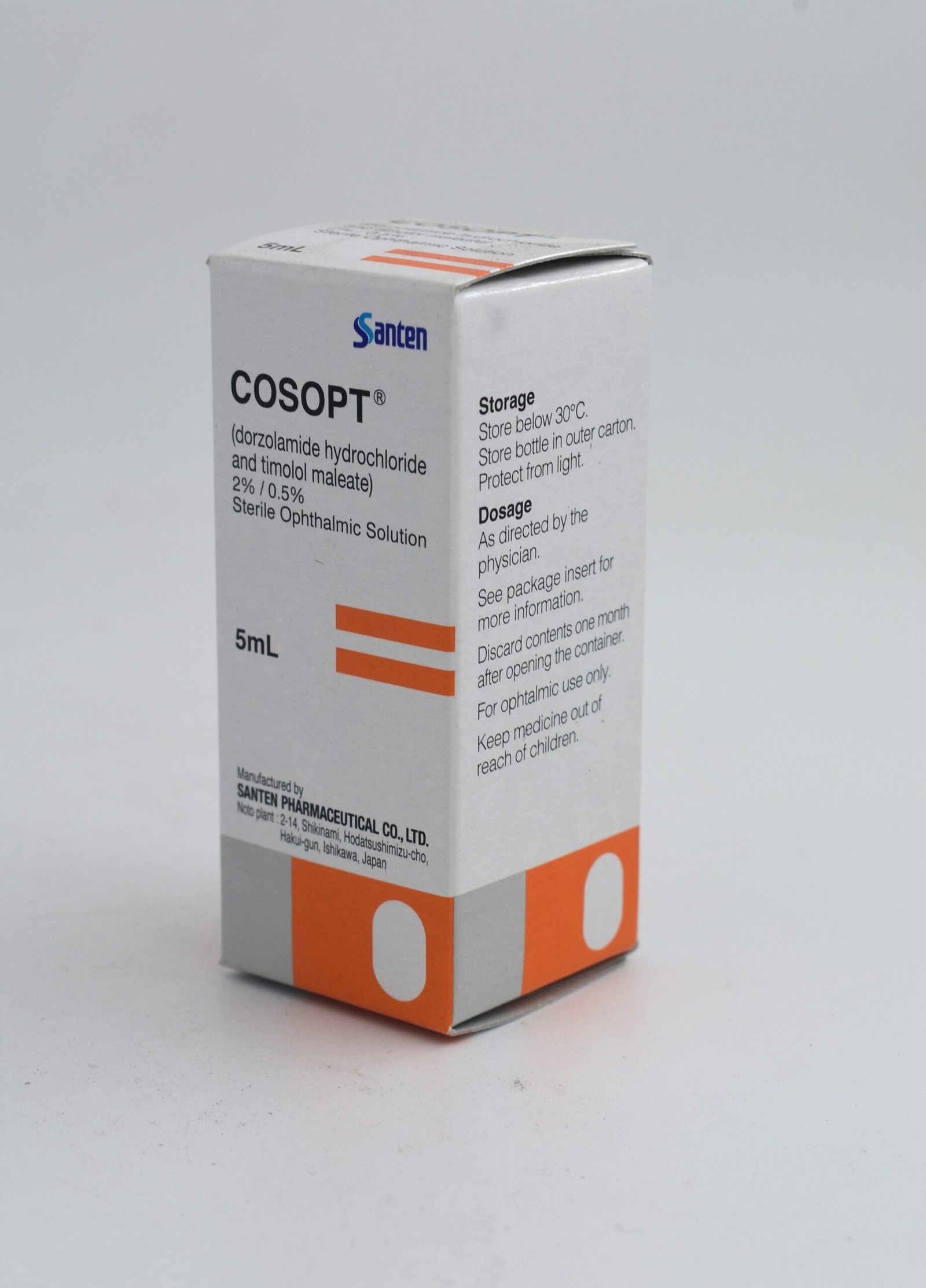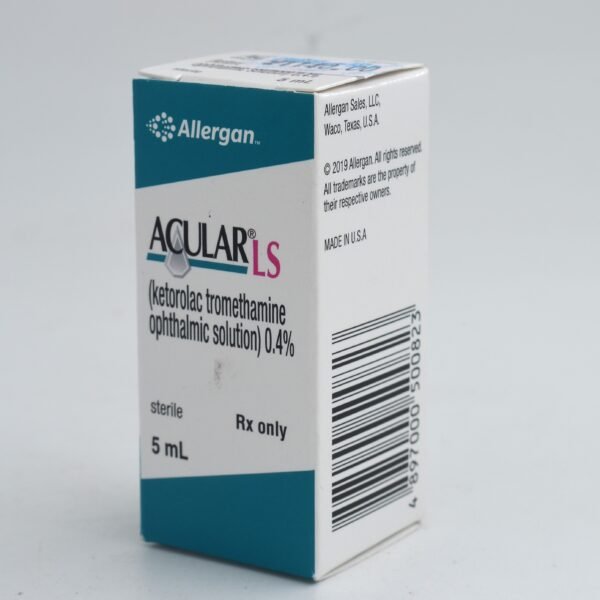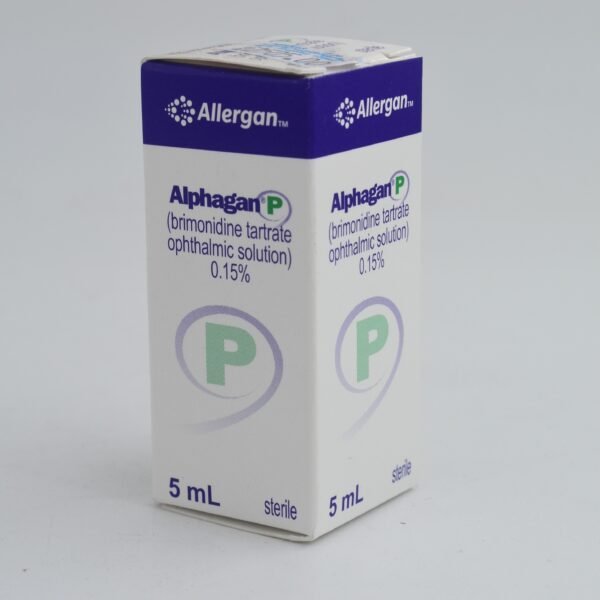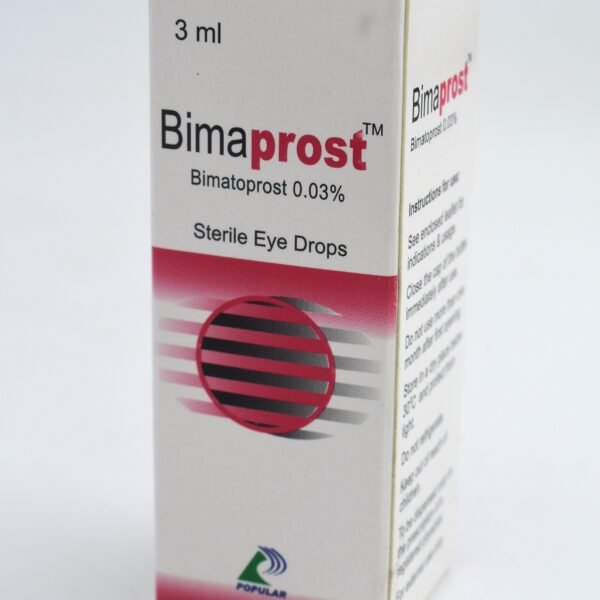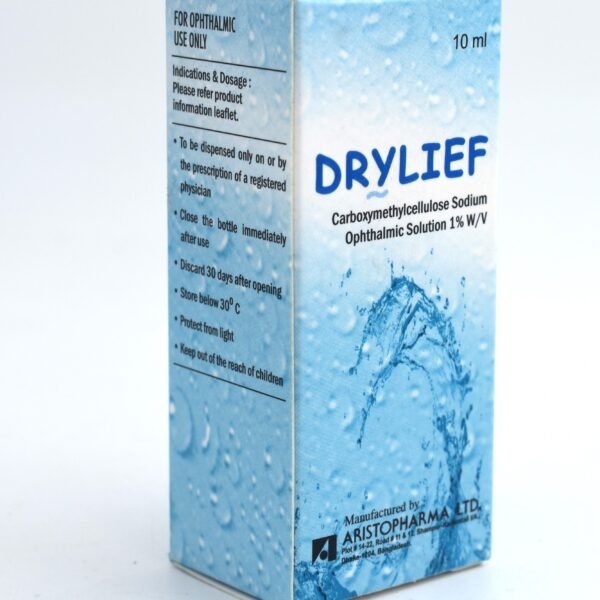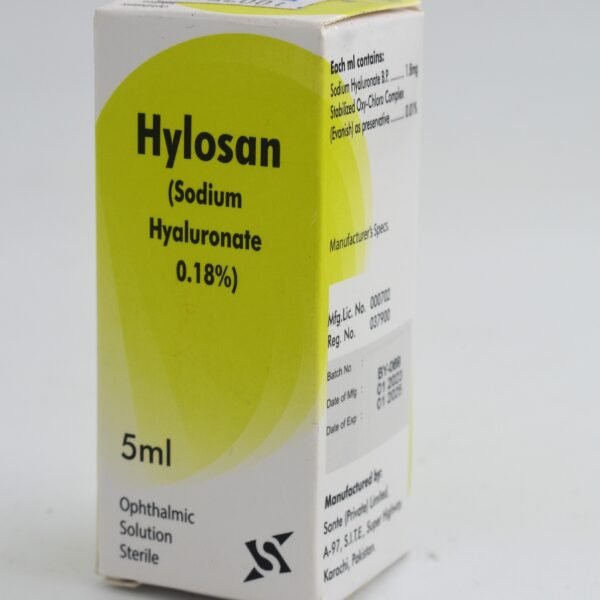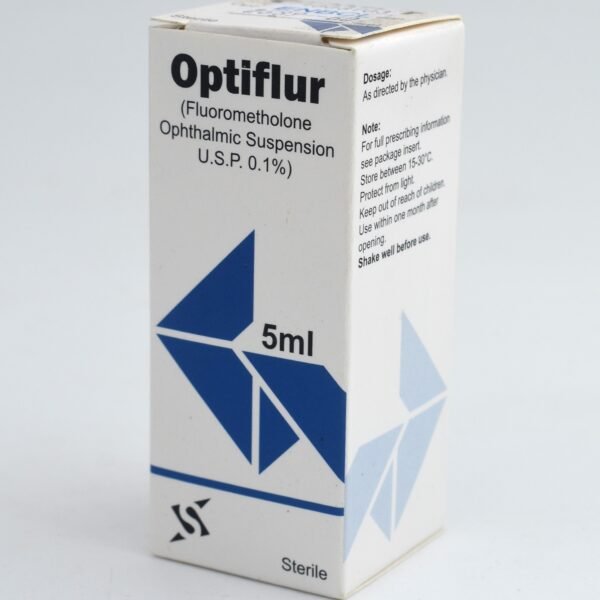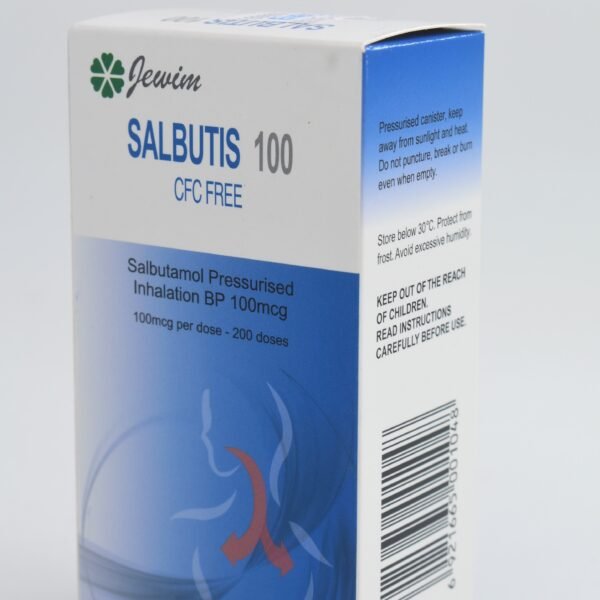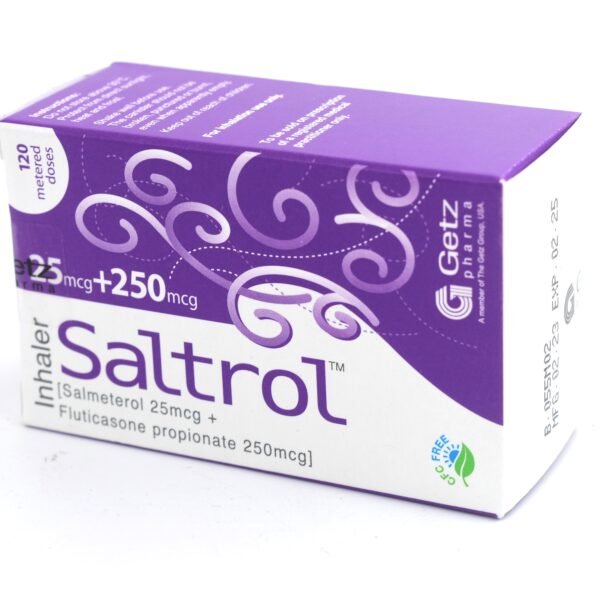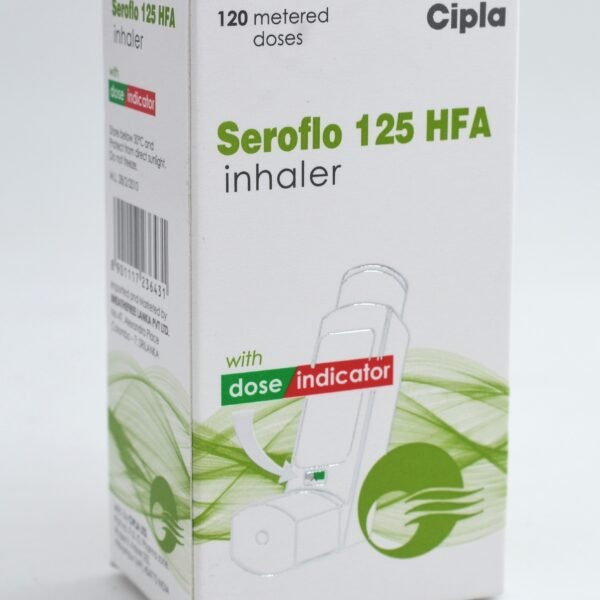What you need to know before you use COSOPT
Do not use COSOPT
- if you are allergic to dorzolamide hydrochloride, timolol maleate or any of the other ingredients of this medicine (listed in section 6).
- if you have now or had in the past respiratory problems, such as asthma or severe chronic obstructive bronchitis (severe lung disease which may cause wheeziness, difficulty in breathing and/or long-standing cough).
- if you have a slow heart beat, heart failure or disorders of heart rhythm (irregular heart beats).
- if you have severe kidney disease or problems, or a prior history of kidney stones.
- if you have excess acidity of the blood caused by a build up of chloride in the blood (hyperchloraemic acidosis).
If you are not sure whether you should use this medicine, contact your doctor or pharmacist.
Warnings and precautions
Talk to your doctor before using COSOPT.
Tell your doctor about any medical or eye problems you have now or have had in the past:
- coronary heart disease (symptoms can include chest pain or tightness, breathlessness, or choking), heart failure, low blood pressure.
- disturbances of heart rate such as slow heart beat.
- breathing problems, asthma or chronic obstructive pulmonary disease.
- poor blood circulation disease (such as Raynaud’s disease or Raynaud’s syndrome).
- diabetes as timolol may mask signs and symptoms of low blood sugar.
- overactivity of the thyroid gland as timolol may mask signs and symptoms.
Tell your doctor before you have an operation that you are using COSOPT as timolol may change effects of some medicines used during anaesthesia.
Also tell your doctor about any allergies or allergic reactions including hives, swelling of the face, lips, tongue, and/or throat which may cause difficulty in breathing or swallowing.
Tell your doctor if you have muscle weakness or have been diagnosed as having myasthenia gravis.
If you develop any eye irritation or any new eye problems such as redness of the eye or swelling of the eyelids, contact your doctor immediately.
If you suspect that COSOPT is causing an allergic reaction or hypersensitivity (for example, skin rash, severe skin reaction, or redness and itching of the eye), stop using this medicine and contact your doctor immediately.
Tell your doctor if you develop an eye infection, receive an eye injury, have eye surgery, or develop a reaction including new or worsening symptoms.
When COSOPT is instilled into the eye it may affect the entire body.
If you wear soft contact lenses, you should consult your doctor before using this medicine.
Use in children
There is limited experience with COSOPT in infants and children.
Use in elderly
In studies with COSOPT, the effects of this medicine were similar in both elderly and younger patients.
Use in patients with liver impairment
Tell your doctor about any liver problems you now have or have suffered from in the past.
Other medicines and COSOPT
COSOPT can affect or be affected by other medicines you are using, including other eye drops for the treatment of glaucoma. Tell your doctor if you are using or intend to use medicines to lower blood pressure, heart medicine or medicines to treat diabetes. Tell your doctor or pharmacist if you are using, have recently used or might use any other medicines. This is particularly important if you are:
- taking medicine to lower blood pressure or to treat heart disease (such as calcium channel blockers, beta-blockers or digoxin).
- taking medicines to treat a disturbed or irregular heartbeat such as calcium channel blockers, beta-blockers or digoxin.
- using another eye drop that contains a beta-blocker.
- taking another carbonic anhydrase inhibitor such as acetazolamide.
- taking monoamine oxidase inhibitors (MAOIs) which are used to treat depression.
- taking a parasympathomimetic medicine which may have been prescribed to help you pass urine. Parasympathomimetics are also a particular type of medicine which is sometimes used to help restore normal movements through the bowel.
- taking narcotics such as morphine used to treat moderate to severe pain.
- taking medicines to treat diabetes.
- taking antidepressants known as fluoxetine and paroxetine.
- taking a sulfa medicine.
- taking quinidine (used to treat heart conditions and some types of malaria).

